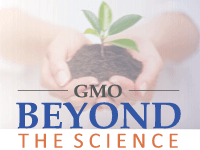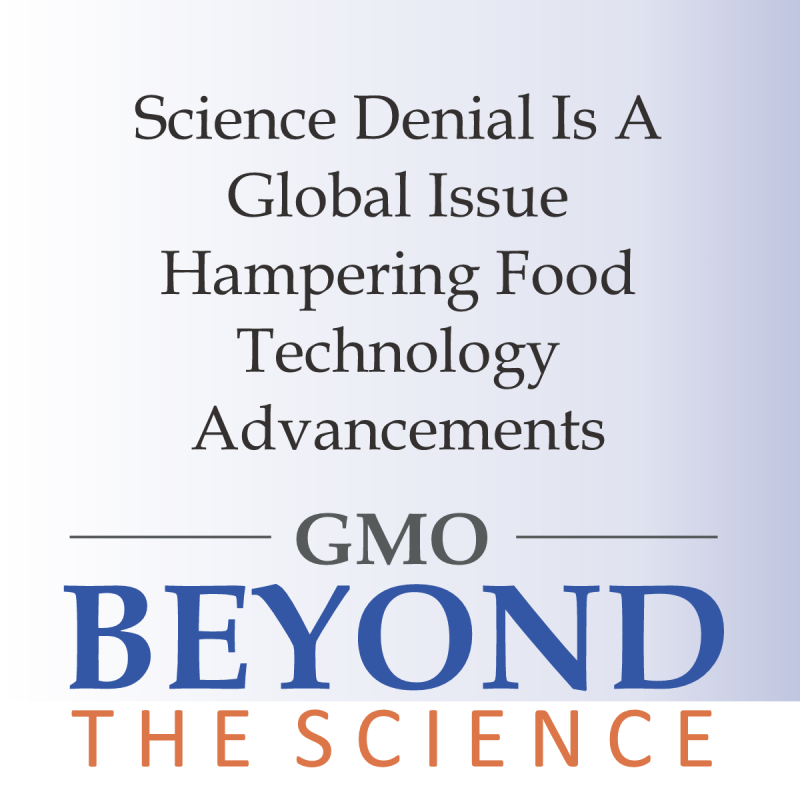 Charlie Arnot, CEO, Center for Food Integrity | February 22, 2017
Charlie Arnot, CEO, Center for Food Integrity | February 22, 2017
ALSO READ:
Asian Agrobiotechnology Slowed By Private-Public Sector Tensions And NGO Activism
Mahaletchumy Arujana
Asia is home to 60 percent of the global population and two thirds of the world’s poor. Many countries are not food secure and traditional farming practices are threatening its agriculture sector.
In her paper, Dr. Arujanan notes that as incomes in developing countries increase, calorie demands will also climb as diets include more resource-intensive foods like meat, dairy, eggs, fruits and vegetables. But the Asian agricultural sector is not well positioned to meet demand as it deals with a lagging GDP, an ageing farming community and the impact of climate change.
Another aggravating factor, according to Arujanan, is low science literacy among the general Asian populace, hindering acceptance of new technology. The challenge is certainly not unique to Asia.

In the 17th century, Galileo used science and his powers of observation to declare that the sun, not the earth, was the center of the universe. For his contribution to science and society he was declared a heretic and spent the rest of his life under house arrest.
Scientific consensus tells us that climate change is real and genetically modified (GM) foods are safe to eat. Yet the public debate on topics like these continues.
Genetic modification and other technologies in food and agriculture have provided many benefits to society. Innovation helps us meet one of humanity’s basic needs – making safe, nutritious food accessible. Yet despite what science says, GM foods still generate controversy.
A survey from the Pew Research Center says that 88 percent of scientists believe GM foods are safe to eat, compared with only 37 percent of the public. But the survey doesn’t explain why so many consumers reject scientific consensus when it comes to GM foods.
Consumer trust research from The Center for Food Integrity (CFI) examines consumer rejection of science.
Regardless of the topic, whether it’s global warming, GM foods or myriad other issues, four barriers play an important role in science denial:
- Cultural Cognition: the tendency of people to conform their beliefs about controversial matters to group values that define their cultural identities. Professor Dan Kahan of Yale equates it to fans at a sporting event. No matter what the issue, they take their cues about what they should feel and believe from the cheers and boos of their team’s crowd.
- Confirmation Bias: the tendency of people to favor information that confirms their existing beliefs and opinions. People tend to look for “facts” that support their existing world view and it’s easy to find given the wide variety of programming available online.
- Tribal Communication: digital technologies have resulted in communication that is more tribal and insular. Digital expert Seth Godin says the internet has not created a single connected universe, but instead has created silos of interest. It’s an environment giving those who are passionate about a hobby, issue or cause the power and platform to lead and impact change.
- Bad News Bias: research shows that a single item of negative information is capable of neutralizing five similar pieces of positive information (Richey, Koenigs, Richey and Fortin 1975). All it takes is for one person – a friend, a reporter, a blogger – in your sphere of influence to make a single bad news claim and trust begins to erode.
Indeed, science is sometimes hard for some people to swallow, but overcoming these barriers to support informed decision making and foster greater trust is possible. CFI’s research shows that building relationships based on shared values is the first step to successfully introducing technical information. Too often those in agriculture and food resort to, “If I just give consumers more information and more facts, they’ll come to my side.” But that approach falls flat.
Science may tell us that we can create/grow/build something, but society is asking if we should. Can and should are two entirely different questions. Scientists have tried to substitute scientific verification for ethical justification with the result being a growing gap in scientific acceptance.
CFI’s research clearly shows that when people realize your values are aligned with theirs, they are more willing to consider technical information on an issue as personal as the food they feed their families.
Building trust is a process. Authentic transparency and continued engagement will encourage objective evaluation of scientific information that supports informed decision making. Encouraging informed decision making requires meeting people on their turf, embracing their skepticism and a commitment to engaging over time.
Skepticism in science and technology won’t change – and it shouldn’t. After all, it was healthy skepticism that drove Galileo and continued scientific discovery. But our approach to communicating science and technology has to change to encourage and support decisions based on sound information.
 Charlie Arnot is the CEO of the Center for Food Integrity. The Center for Food Integrity is a not-for-profit organization that helps today’s food system earn consumer trust. Our members and project partners, who represent the diversity of the food system, are committed to providing accurate information and working together to address important issues in food and agriculture. The Center does not lobby or advocate for individual companies or brands. For more information, visit www.foodintegrity.org.
Charlie Arnot is the CEO of the Center for Food Integrity. The Center for Food Integrity is a not-for-profit organization that helps today’s food system earn consumer trust. Our members and project partners, who represent the diversity of the food system, are committed to providing accurate information and working together to address important issues in food and agriculture. The Center does not lobby or advocate for individual companies or brands. For more information, visit www.foodintegrity.org.
The Genetic Literacy Project is a 501(c)(3) non profit dedicated to helping the public, journalists, policy makers and scientists better communicate the advances and ethical and technological challenges ushered in by the biotechnology and genetics revolution, addressing both human genetics and food and farming. We are one of two websites overseen by the Science Literacy Project; our sister site, the Epigenetics Literacy Project, addresses the challenges surrounding emerging data-rich technologies.































